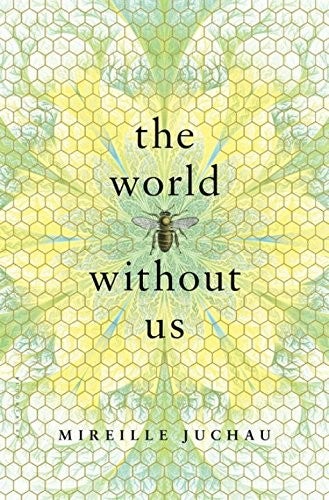Mireille Juchau, The World Without Us: 'Calm before the swarm', book review
Mireille Juchau depicts the Müllers, a family living on their farm in the Australian rainforest, tending to the diminishing swarms in the hives

Your support helps us to tell the story
From reproductive rights to climate change to Big Tech, The Independent is on the ground when the story is developing. Whether it's investigating the financials of Elon Musk's pro-Trump PAC or producing our latest documentary, 'The A Word', which shines a light on the American women fighting for reproductive rights, we know how important it is to parse out the facts from the messaging.
At such a critical moment in US history, we need reporters on the ground. Your donation allows us to keep sending journalists to speak to both sides of the story.
The Independent is trusted by Americans across the entire political spectrum. And unlike many other quality news outlets, we choose not to lock Americans out of our reporting and analysis with paywalls. We believe quality journalism should be available to everyone, paid for by those who can afford it.
Your support makes all the difference.The decline in the population of the world’s bees is a real-life conundrum with which environmentalists and governments alike grow more concerned by the day. The consequences of the extinction of these small yet impossibly significant creatures would be catastrophic.
But what of the beekeepers, fighting a losing battle for their livelihoods while balancing their own personal dramas?
In The World Without Us, Mireille Juchau depicts the Müllers, a family living on their farm in the Australian rainforest, tending to the diminishing swarms in the hives. Stefan, the stoic patriarch, attempts to keep the unit together after the death of the youngest daughter, Pip, but the challenge often proves as hopeless as the demise of the bees.
Tess, his eldest, goes silent in a frustrating case of selective mutism, Meg struggles with her newfound status as the youngest child and Evangeline, his free-spirited wife, descends into an unpredictable and destructive depression.
Jim – Tess’s schoolteacher and the Müller’s nearest neighbour – comes across Evangeline as he walks through the forest. They swim in the river together, with Jim fearful of the power of the water, Evangeline at peace in its embrace, temporarily free from the crushing sadness that blights her.
Eventually, and inevitably, the pair embark on an unfussy affair which both seem to crave as a method of burying their separate griefs: Jim’s, a separation marred by death, and Evangeline’s long list of personal strifes. As she and the burdened Stefan are tested more and more, the brittle threads that hold the family together begin to fray.
While the family and its farm are the undeniable focus, Juchau creates a subtle but elaborate population, all with their own fully formed pasts. The novel, like Evangeline, is understated and calm, and yet thoroughly captivating.
Her quiet, desperate sadness trickles through every narrative, and it is her happiness that we long for. The hive’s unassuming and unavailable queen, she is scarred both physically and mentally, her erratic whims affecting all around her, her daughters more than anyone.
Meticulously researched and vividly described, The World Without Us is detailed and emotionally fraught, its portrait of love and loss possessing an almost timeless quality.
Juchau confirms an eternal concept: when the past holds such pain, and the future such dread, sometimes all one can do is muddle through the present.
The World Without Us, by Mireille Juchau. Bloomsbury £16.99
Join our commenting forum
Join thought-provoking conversations, follow other Independent readers and see their replies
Comments